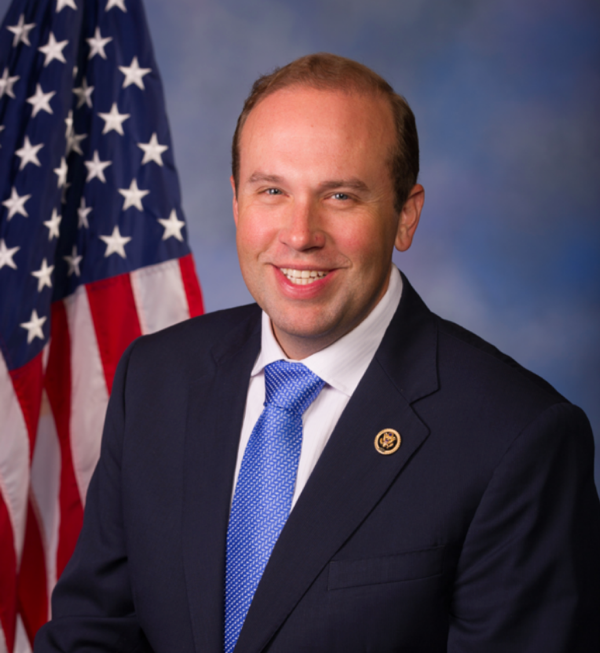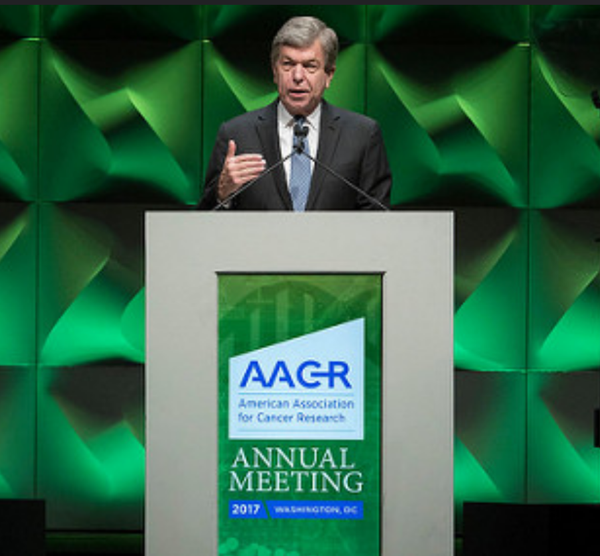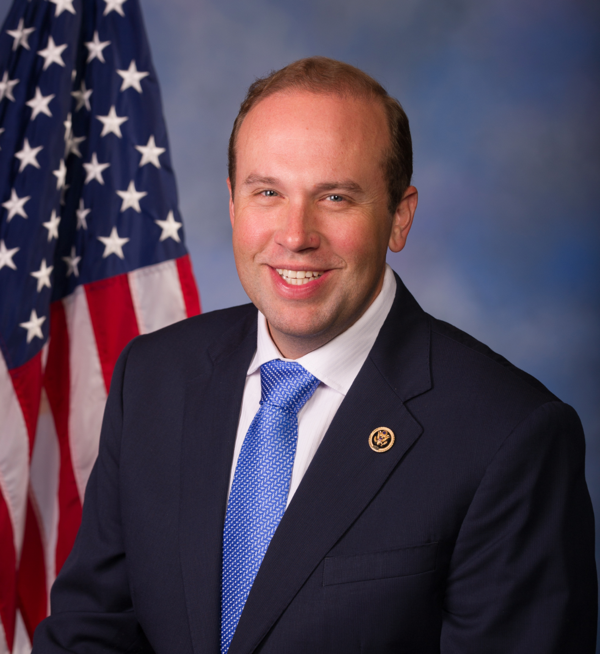
Smith tours plant and meets with power providers, discusses recent action to stop bad regulations
Marston, Missouri - On Friday, Congressman Jason Smith was in Marston to tour the New Madrid Power Plant and discuss his work to relieve the regulatory burden on energy providers in Missouri.
Before touring the New Madrid Power Plant, Congressman Smith sat down with the hard-working people who keep the plant running and talked about recent actions by President Trump to eliminate Obama’s so-called “Clean Power Plan.” This was a major regulatory issue that would have increased production costs for the plant.
“The so called ‘Clean Power Plan’ is just the latest in a long list of regulations that show how unelected, unaccountable bureaucrats do not understand southeast and south central Missouri,” said Congressman Smith. “After President Trump was elected, his team asked me to help identify regulations hurting rural America, and I immediately thought of the folks back home who told me that their utility bills were going to triple in cost after the Obama Administration and the EPA rolled out this ridiculous rule.”
Recently, major components of the Clean Power Plan, a high-cost regulation U.S. Rep. Smith asked the Trump Administration to take quick action on, were suspended and rescinded. In December of 2016, Rep. Smith met with and sent a letter to the incoming administration asking them to eliminate 14 federal rules and regulations, one of which was the Clean Power Plan. Smith’s work with the Administration will save jobs and money for Missourians.
If implemented, this rule would have increased the cost of electricity and made it unaffordable for many residents in the state. Rescinding the Clean Power Plan stops the Obama Administration’s costly rules for energy production, helps prevent skyrocketing utility rates, ensures coal plants stay open and keeps jobs in Missouri.
“Missouri residents get 83% of their energy from coal-fired power plants,” said Congressman Smith. “Eliminating Obama’s ‘Clean Power Plan’ means folks at the New Madrid plant can continue their work without the burden of government regulations and provide clean, affordable power to farmers, small businesses and families in Missouri.”
Missouri coal is some of the cleanest in the world. Before Obama’s “Clean Power Plan” existed, operations like New Madrid invested billions of dollars to keep their coal-fired power plants clean. The New Madrid Power Plant is part of Associated Electric Cooperative, Inc. and employs 180 people.

Before touring the New Madrid Power Plant, Congressman Smith will sit down with the hard-working people who keep the plant running and talk about recent actions by President Trump to eliminate Obama’s so-called “Clean Power Plan.” This was a major regulatory issue that would have increased production costs for the plant. Press is invited to join this conversation. If you are interested in attending, please email maggie.starks@mail.house.gov.
WHO: Congressman Jason Smith
WHAT: New Madrid Power Plant Tour
WHEN: Friday, April 7, 2017 1:45pm to 2:45pm
WHERE: New Madrid Power Plant, 917 E Elm St., Marston, MO 63866

“When everyone in your family is healthy, you have lots of problems; when someone is sick, you only have one problem,” Blunt said. “I’ve been proud to lead efforts as chairman of the Labor/HHS appropriations subcommittee to increase resources for life-saving biomedical research at the National Institutes of Health and the National Cancer Institute. Responsibly prioritizing resources for NIH and NIC will pave the way for new treatments and cures, reduce health care costs over the long term, and help maintain America’s competitive edge in innovation.”
Through his position as chairman of the Labor/HHS appropriations subcommittee, Blunt secured a $2 billion increase for NIH in the FY 2016 omnibus appropriations bill, which included a five percent increase for NCI. This was the first significant increase for NIH in over a decade.
In June 2016, Blunt secured another $2 billion increase for NIH in the bipartisan, committee-passed FY2017 Labor/HHS appropriations bill.
Blunt continued, “Maintaining a robust, sustained federal commitment to medical research will give hope to more families battling cancer and other diseases. It’s an incredible honor to receive this award, and I’ll continue working to establish a pattern of responsibly investing in groundbreaking medical research, especially in areas such as cancer research.”
At the award ceremony, Blunt discussed the subcommittee hearing he chaired last month on the importance of investing in medical research. Blunt highlighted the testimony of Dr. Timothy Eberlein of St. Louis’ Siteman Cancer Center, who talked about the success that the NIH-led Precision Medicine Initiative, which Blunt started in last year’s Labor/HHS bill, has had in allowing doctors to use specific genetic information to tailor treatments to patients and improve outcomes of care.
In addition to his efforts as Labor/HHS subcommittee chairman, Blunt recently cosponsored the Childhood Cancer Survivorship, Treatment, Access, and Research (STAR) Act. The STAR Act is a bipartisan, comprehensive bill that would expand opportunities for childhood cancer research, improve efforts to identify and track incidence of childhood cancer, and enhance the quality of life for childhood cancer survivors.

Under Construction: Jobs & Energy Independence
March 24, 2017
The number one responsibility of your government is to keep you and your loved ones safe. Energy security – knowing we can put gas in our cars and heat our homes – is a major part of that safety and security. But for too long, the government has been dependent on Middle Eastern countries supplying us with oil, sitting back and waiting for them to provide our energy resources – leaving us with a hefty price tag.
This week, President Trump took major action to move forward with the Keystone XL pipeline project. A project which will make us less reliant on countries who don’t have our best interests at heart and will secure our energy independence while adding jobs and growing the economy.
The request to begin construction on the Keystone XL pipeline was first submitted to President Obama in 2008. But Barack Obama spent all eight years of his presidency prioritizing and championing the radical environmental cause. Even after Obama’s State Department determined the pipeline project would not contribute to climate change, Obama put politics ahead of the American people and refused to approve the pipeline.
From eight years of obstruction to eight weeks of action, President Trump has worked quickly to move the Keystone XL pipeline project forward. During his first week in office, President Trump signed a Presidential Memorandum to clear roadblocks and speed up the approval process for the pipeline. And this week, he signed the final permit to approve construction of the pipeline.
The construction of the Keystone XL Pipeline will lower energy costs for Missouri families and infuse our country’s economy with the kind of infrastructure investment that creates and supports jobs.
This pipeline is an $8 billion investment that will create more than 42,000 construction jobs. The project will use American steel and direct roughly $3.4 billion into the pockets of hardworking Americans who desperately need it. These dollars will go to cash-strapped communities in rural America, supporting local grocery stores, local car dealerships, local restaurants, local housing markets - the list goes on and on.
I have been pushing for construction of the pipeline since joining Congress forty months ago. In 2015, I voted for the Keystone XL Pipeline Approval Act. This bill had bipartisan support from over 300 members of Congress, would have put thousands of Americans back to work and reduced the burden of high energy costs. This legislation advanced through both Chambers of Congress and made it all the way to President Obama’s desk, only to be ignored.
The Keystone XL Pipeline will carry nearly 800,000 barrels of North American oil per day. It makes zero sense to rely on foreign countries for our energy when we have access to a wealth of energy resources right here in America.
Between lower gas prices and less money on your energy bills, Missourians are set to benefit from the Keystone XL pipeline project. Calling this a “new era for American energy,” President Trump promised his administration would follow through with more infrastructure projects that put a paycheck directly in the hands of hardworking Americans. I am glad President Trump approved construction of the pipeline, and am thankful to see our government prioritizing the nation's security - finally making it possible to stop relying on Middle Eastern nations to meet America’s energy needs.

State Rep. Tila Hubrecht Supports Charter School Compromise,
Includes Full Funding for Missouri’s Public Schools
JEFFERSON CITY, Mo. – Missouri’s public schools will receive full funding for the first time under a charter school bill supported by state Rep. Tila Hubrecht. Hubrecht had been opposed to charter school expansion but said a compromise put forward by House Speaker Todd Richardson included the funding and accountability measures that made the bill more palatable.
“I am a strong defender of our public school system and believe we have amazing schools providing a world class education to our young people. I don’t want to do anything to jeopardize that, and I firmly believe the bill the House passed has protections in place to ensure our public schools will be able to continue to succeed,” said Hubrecht, R-Dexter. “As part of the compromise on the bill, public schools will now receive record funding levels as our foundation formula will be fully funded for the first time. This is great news for our young people and for our educators who will have access to the resources they need to provide a quality education.”
The language included in the charter school bill (HB 634) would limit charter school expansion only to areas where schools are failing. The bill is meant to provide additional options to students who would otherwise have nowhere else to turn to receive a quality education.
“Some have accused me of being dishonest on this issue because I supported the bill after being opposed to charter school expansion in the past. The truth is that Speaker Richardson listened to my concerns and worked with me and other members of our caucus make this bill one we all could live with,” said Hubrecht. “This bill isn’t perfect but it does strengthen our support for public schools, while also allowing for the doors of opportunity to be opened for young people who would otherwise be left behind.”
Hubrecht noted that the legislation would increase the accountability and academic requirements for not only new charter schools, but existing ones as well. The bill would limit charter school expansion to districts that have a school building with an Annual Performance Report (APR) score of 60 or lower in two of the last three years. If a charter underperforms in comparison to similar schools in their district for two of the past three years, they will be limited to a three-year charter renewal. The bill provides that charter schools will have a three year probationary period, and if a charter performs poorly during two of the three years, that charter school will be ineligible for renewal and will be forced to close.
The bill would also limit the public dollars sent to charter schools to more than 90 percent of the sending district’s tuition. Additionally, the bill is contingent on the school foundation formula being fully funded. If the K-12 formula is not fully funded, then no charter school changes go into effect.

